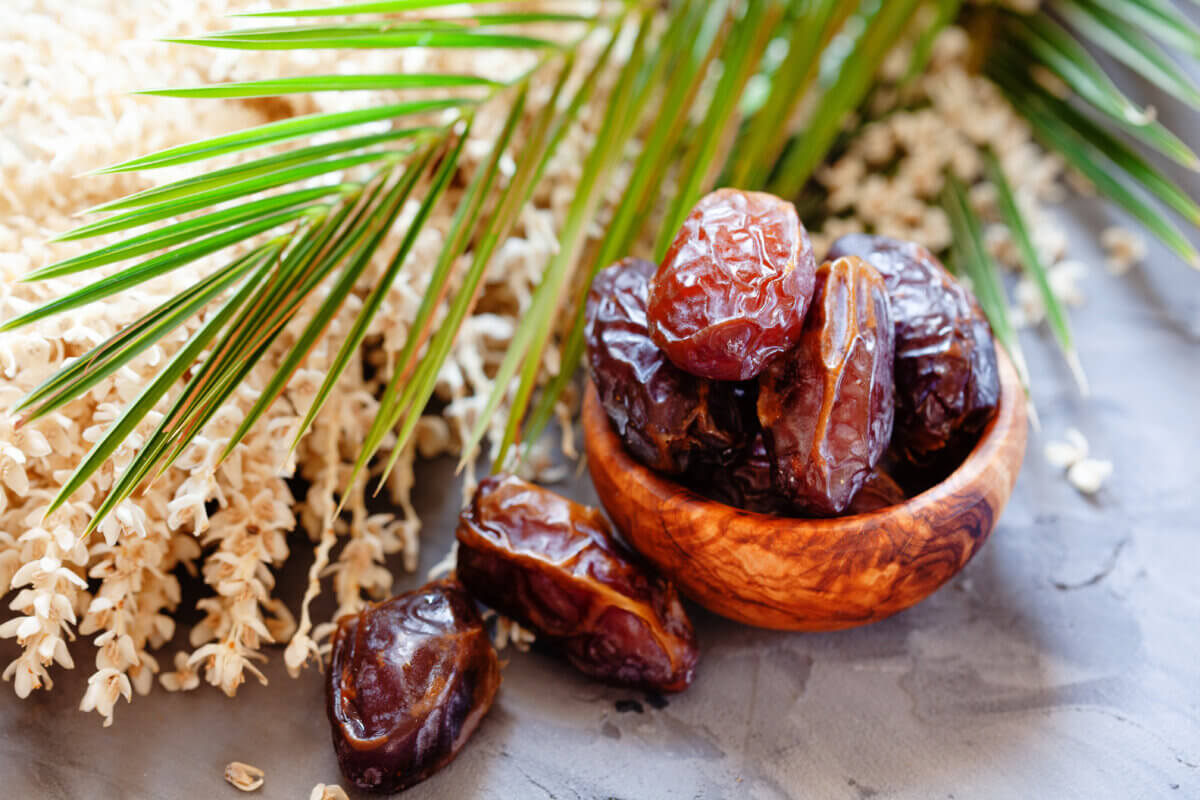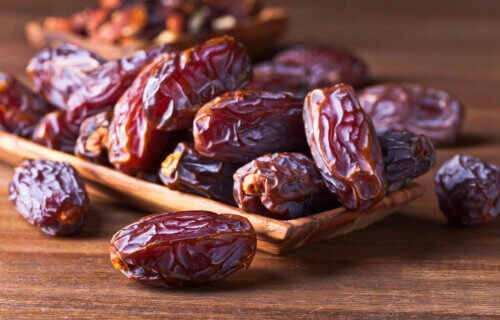Medjool dates aren’t the most popular fruit in the United States, unlike the orange or apple, but they aren’t called the “fruit of the kings” for nothing. Native to Morocco and originally eaten by royalty, Medjool dates are nature’s candy. They can sweeten up your diet, all while adding great nutrition.
Typical sweet snacks like candy, cakes, and cookies offer very little nutrition, while giving you a hefty dose of refined carbohydrates. Yet, it’s so easy to just keep grabbing for more even if we know it isn’t the best option. A recent poll including 2,000 Americans found that half of adults eat more candy during adulthood than they ever did as kids.
While not surprising, another recent study found that having a sweet tooth could cost you your heart health. The study looked at specific foods that are top contributors to heart disease, finding that chocolate, confectionary, table sugar, preserves, and white bread were the leading culprits.

Fruit in general is often referred to as “nature’s candy,” but sometimes apples and bananas just don’t hit the spot. If you haven’t tried Medjool dates, you might want to give them a go because they truly do taste like a dessert. In fact, dates are even made into sugars and syrups so that people can use them as a refined sugar-free substitutes in baking. Not to mention, they’re incredibly healthy for you too, and here’s how:
High in fiber
Just two Medjool dates will give you about 25 grams of sugar, but don’t let that deter you. They will also provide you with three grams of fiber to help slow down the absorption of these sugars. Their insoluble fiber content also helps to promote healthy digestion and bowel movements.
Rich in potassium
When you think potassium, you probably think bananas. It might surprise you that Medjool dates have 50 percent more potassium than bananas by weight. Current recommendations suggest that potassium intake should be double that of sodium intake in order to yield optimal heart rates, breathing, and muscular function, and dates can help you get there.
Full of disease-fighting antioxidants
Medjool dates offer tons of health-promoting antioxidants that protect your cellular health. Namely, they contain flavonoids (that can help lower inflammation), carotenoids (which promote a healthy heart), and phenolic acid (which may reduce inflammation and decrease risks of cancer and heart disease).
Low glycemic index
While just two dates can pack a decent amount of sugar, they have a low glycemic index. This means that they won’t spike your blood sugar nearly as high as refined sugar-laden treats. White sugar has an index of around 65, while dates come in over 20 points under that at closer to 40.
You may or may not have shopped for dates before, but they are pretty easy to find in stores in the produce or dried fruit aisles. The easiest way to avoid searching for an unhealthy option is to have healthy ones available to you. Dates are dried and don’t require refrigeration, making them super easy to pack and go with you anywhere. Then again, they can also stay put in your pantry for when you need to crush the 8 p.m. sweet tooth in a healthy way.


If you ever find yourself in the Palm Springs area of Southern California, about an hour’s drive will take you to the date palm farms. The gift shops have many varieties of dates that you rarely see in the market.
Sometimes a market in my city will sell fresh dates on the branch. You take them home and let them ripen for a few days; once they’ve shriveled and concentrated the sweetness and flavor, they’re ready to eat.